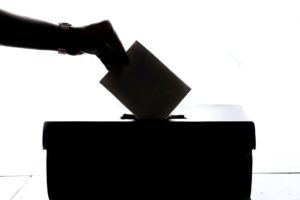These excerpts from the University Day lecture delivered on August 15, 2006 by Dr. Clement Camposano, former faculty member of the College of Arts and Sciences of UA&P, were first published in Universitas in November 2006.
Since the fall of the Marcos dictatorship in 1986, the question of how to make democracy work in the Philippines has been at the center of much public political discussion and debate. This debate continues to this very day, stoked no doubt by the war of attrition that goes on (and on, and on…) between a relentless political opposition and an equally tenacious President, whose survival antics many of us love to hate.
Among the more prominent strands in these discussions is the issue of culture—it has been contended by a number of well-meaning observers that Filipino culture, with its close family ties and values, such as utang na loob and pakikisama, is not conducive to the kind of politics demanded by the country’s imported republican institutions.
The scope of political reform should therefore be broadened to include not only dismantling the authoritarian machinery but also the adoption of values more in keeping with or supportive of democratic politics.

Trapo politics
It is easy enough to see that in the Philippines, almost a century after the first republican institution was established [the Philippine Assembly was inaugurated in 1907], translating democracy into a meaningful way of life has not been achieved.
Corruption, more brazen than ever, eats up an ever larger share of our nation’s resources.
Despite our much-celebrated capacity for “people power,” what we in fact have in this country is a poor imitation, indeed, a travesty, of the real thing. The much vaunted “checks and balance” really means “give and take.” The word areglo has great currency in the halls of power: it defines the political ethos of our time.

The civic culture
If there is a strong link between democracy and culture, then there is a need not only to specify this link but also to acquire a practical understanding of it. Let us therefore begin with a few questions.
If a real public sphere or consciousness of a larger, abstract society beyond friends and family is lacking, how should Filipinos go about building it? What makes this type of “consciousness” possible? How is it possible for people to transcend the pull of personal and familial ties and mentally situate themselves within this larger community of anonymous others?
To put it differently, what makes democratic citizenship possible?
Most previous interventions in this area attempted merely to preach the virtue of citizenship from the rooftops. Not founded on a clear understanding of the nature of citizenship, nor of the kind of dynamics that attend its historical emergence, these interventions were bound to fail.
Before political efficacy and genuine political participation can be attained, there is a need to lay the basis for collective political action. The operational question, I believe, is this: What is it in everyday life that will allow persons without personal or dyadic ties to work together for a common cause?
How is it also possible to transcend such carryovers from the baranganic age as the ancient notion of taga-loob and taga-labas, so that in Cubao there would be fewer strangers and more friends we have not met? The answer obviously cannot be another mystical incantation like “moral recovery.”
Interestingly, and perhaps even ironically, one word summarizes all of these so-called “intellectual and moral capacities” in Tagalog, and it is one that signifies a concrete, historically evolved social practice: bayanihan.

Bayanihan as we have experienced it, however, is also a local phenomenon. It is about a group of people moving a house from point A to point B. Applying the idea to an imagined [perhaps, even imaginary] “national community” of 80 million, a social and ethnic mosaic of speaking close to one hundred different languages, is the height of nativistic folly.
Still, bayanihan as community endeavor has something very important to teach us: It is only by building trust in the context of concrete, everyday issues—threats to livelihood and health for instance—rather than mobilizing people through ideological abstractions, that the basis for more democratic communities will be laid.
Lest we forget, democracy was born to city-states, not to nation-states.
In the long run, it is sustained and ever-expanding civil society activity, and the kind of civic habits and dispositions they instill in people, that will make traditional political practices untenable.
Forget about trying to fix national character.#
—
Note: This article was the feature for the Rewind Section of the May 2020 issue of Universitas, which aimed to tackle the importance of dialogues. The magazine had to be modified, however, due to the coronavirus pandemic.
Banner photo by Krisia Vinzon from Pexels.
Leave a Reply